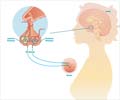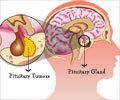Cabergoline Medication Information
Learn everything you need to know about Cabergoline-pronunciation, uses, dosage guidelines, indications, and when to take or avoid it.
Get up-to-date information on side effects, precautions, warnings, and proper storage to ensure safe usage.
Explore Cabergoline brand names commonly used in India and internationally, along with detailed pricing information. Consult your healthcare provider for tailored medical advice.
Generic Name : Cabergoline Therapeutic Classification : Miscellaneous Endocrine AgentsBrand Names or Trade Names of Cabergoline
India :
International :
Dostinex .
Why is Cabergoline Prescribed? (Indications)
This medication is a potent dopamine receptor agonist, prescribed for hyperprolactinemic disorders (high level of prolactin hormone), Parkinson’s disease either alone or with other medications. It decreases the amount of prolactin in the body.When should Cabergoline not be taken? (Contraindications)
Hypersensitivity to ergot derivatives, uncontrolled hypertension.What is the dosage of Cabergoline?
Adult: PO- The recommended initial dose is 0.25 mg twice a week. Dosage may be increased by 0.25 mg twice weekly up to a dosage of 1 mg twice a week according to the patient's serum prolactin level.How should Cabergoline be taken?
Should be taken with food.What are the warnings and precautions for Cabergoline?
•Caution should be exercised in patients with history of heart disease, Raynaud's syndrome, liver or kidney impairment, peptic ulcer, gastrointestinal bleeding, history of psychosis, high blood pressure, during pregnancy and breastfeeding.It may cause dizziness or drowsiness, do not drive a car or operate machinery while taking this medication.
Avoid prolonged use and/or usage of high doses otherwise it may lead to psychiatric disorders, heart or lung disorder.
Avoid alcohol consumption while taking this medication.
Monitor serum prolactin level monthly until normalization.
What are the side effects of Cabergoline?
Gastrointestinal- Nausea, constipation, abdominal pain, indigestion, vomiting, dry mouth, diarrhea, flatulence, throat irritation, toothache.Central Nervous System- Headache, dizziness, fainting, tingling.
Body As a Whole - Weakness, fatigue, fainting, influenza-like symptoms, uneasiness, swelling of eye/extremities.
Psychiatric- Depression, drowsiness, loss of appetite, anxiety, sleeplessness, impaired concentration, nervousness.
Heart- Hot flashes, low blood pressure, palpitation.
Genitourinary- Breast pain, absence of menstrual cycle.
Skin- Pimple, itching.
Musculoskeletal - Joint pain
Respiratory - Nose inflammation
Eye- Abnormal vision








